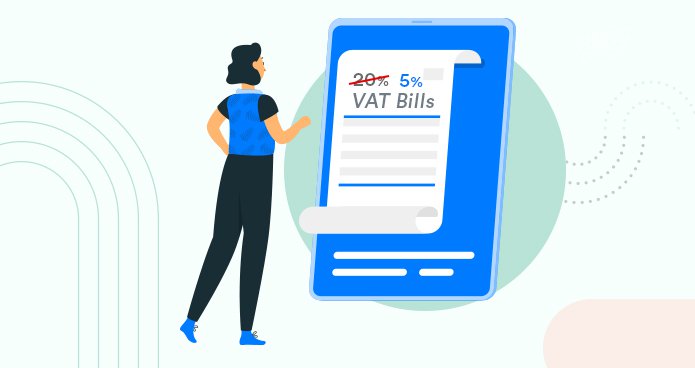“People need to know that although hardship lies ahead, no one will be left without hope.”-Rishi Sunak in the announcements made on Wednesday, 8 July 2020.
This pandemic has definitely brought in the utterly uninvited anxiety to the majority of the population in some way or the other. It was feared that the economy would have its worst hit and as the chancellor recently said, “The world's economic activity has slowed, with the IMF expecting the deepest global recession since records began.”
The UK government has been taking steps time and again and is determined “to do all it can, to give everyone an opportunity of good and secure work” in the country. Chancellor Sunak’s announcements made it clear that the prime goal is to "get the sectors moving and to protect jobs".
In order to stimulate the economy, VAT and stamp duty have been given a temporary overhaul in the announcement made by the Chancellor Rishi Sunak on Wednesday, 8 July 2020. So, two major areas that are impacted by the announcements are the housing market where a cut in the stamp duty was declared and others being slashing VAT on food, drink, and even holiday homes to help these scuffling businesses shoot up again.
Restaurant, hospitality, and tourism industry
With the outbreak of coronavirus, the industry that is worst hit worldwide is the restaurant, hospitality, and tourism industry. These businesses were severely affected by forced closures and social distancing measures. The detrimental effects of the same are no less in the UK. Hence, in order to support these industries, the government came up with RHL Grant as the first aid earlier. Another big step taken by the government to support these industries is the launching of the Eat Out to Help Out scheme and slashing the VAT rates.
- Slashing the VAT rates
Talking about the VAT rates - the VAT rate on businesses indulged in hospitality, hotel, holiday accommodation, and admission to certain attractions and on their advisers has been reduced to 5% from 20%. This cut became effective from 15 July 2020 and is to remain effective until 12 January 2021. This step towards VAT reduction is expected to save households around £160 a year on average. The reduced rate will apply to:- food and non-alcoholic drinks at restaurants, pubs, bars, cafés, including takeaways,
- holiday accommodation, pitch fees for caravans and tents,
- theatres, circuses, amusement parks, museums, cinemas, etc.
Note that the VAT cut is not applicable to alcohol and alcoholic beverages served. Once again, booze is never for free.
- Eat Out To Help Out discount
Another “creative” measure “never tried in the UK before” announced was “eat out to help out discount” to get the customer back into restaurants, cafes, pubs, etc. Under this scheme, the participating businesses can offer a 50% discount, up to a maximum of £10 per person (including children), to diners for food or non-alcoholic drinks to eat or drink in. This discount will be offered from Monday to Wednesday every week throughout August 2020. The restaurants can then claim the discount money back from the government. This scheme aims to provide an incentive to restaurants so that they can attract diners by providing discounts.
Cut in Stamp Duty
Due to the COVID effect, things went down and out for the housing industry. The prices of the houses fell for the first time in eight years. This attracted urgent government attention and to aid this industry the government announced a cut in stamp duty by increasing the stamp duty threshold. Until the announcement, there used to be no stamp duty on houses purchased of value below £125,000. This limit has been increased to £500,000 making the average bill for people buying a home will fall by £4,500 as claimed by the Chancellor.
The stamp duty cut became effective from midnight of 8 July 2020 and is to remain effective till 31 March 2021. This increase in threshold might result in nearly 9 out of 10 people buying a main home this year not being required to pay Stamp Duty at all. But looking at the other way round we’ll see that this cut will majorly benefit the wealthier segment investing in plush homes, as the cheaper homes had small stamp duty bills anyway. The lower section of the society buying low-budget homes was already benefitted from an existing threshold of £125,000.
Note that the stamp duty rates beyond £500,000 remain unchanged. Thus, the Stamp Duty Land Tax rates shall be as follows until 31 March 2021:
| Property or lease premium or transfer value | SDLT rate |
| Up to £500,000 | Zero |
| The next £425,000 (the portion from £500,001 to £925,000) | 5% |
| The next £575,000 (the portion from £925,001 to £1.5 million) | 10% |
| The remaining amount (the portion above £1.5 million) | 12% |
Will the chickens come home to roost?
The situation isn’t very great but every little initiative does count. Over this period of some four months or so, the government has been devising schemes and support for people and businesses to at least survive, if not grow. The future looks bleak and blurry but hopefully, the efforts would not go wasted.
Sunak said -“We entered this crisis unencumbered by dogma and we continue in this spirit, driven by the simple desire to do what is right.” So let’s wait until everything falls back into place.













